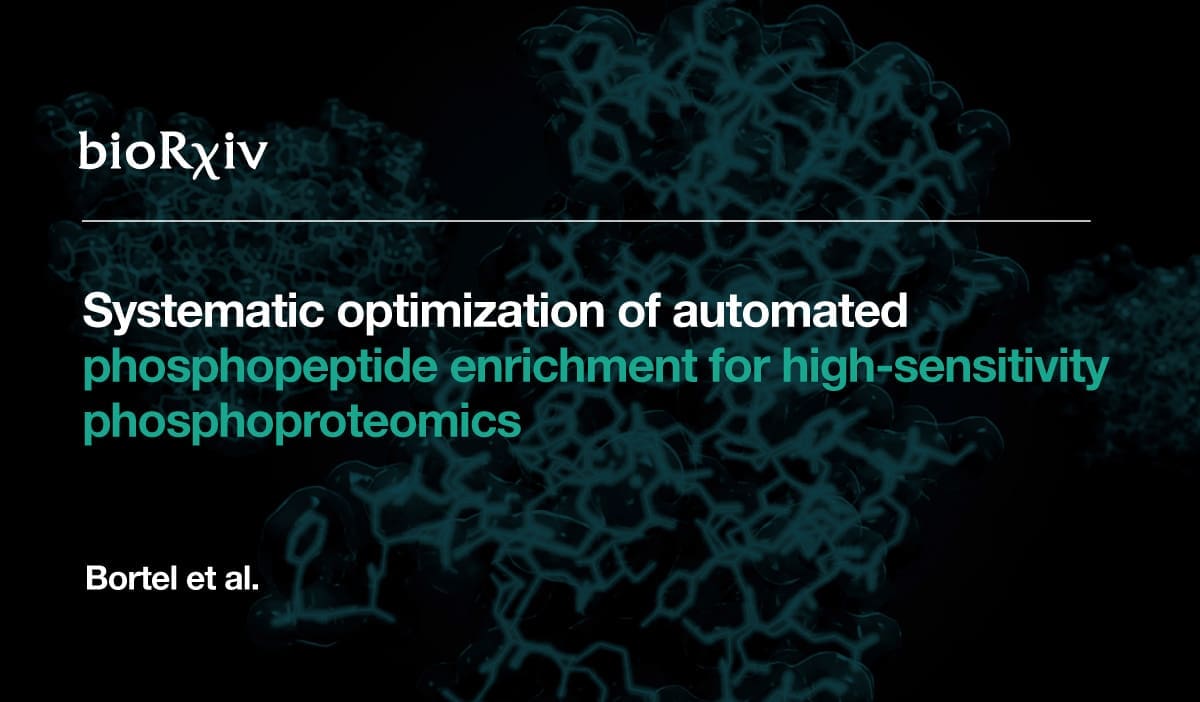
In a recent study published in BioRxiv out of the Olsen lab, Bortel et al. explores the optimization of phosphoproteomics sample preparation for mass spectrometry analysis. Phosphoproteomics involves the study of protein phosphorylation, a crucial post-translational modification. Researchers systematically optimized various parameters for automated on-bead phosphoproteomics sample preparation, with a focus on low-input samples.
The study resulted in the confident identification of over 16,000 phosphopeptides in a half-hour LC-MS/MS analysis using 30 µg of peptides as starting material on an Orbitrap Exploris480. The researchers also demonstrated that sequential enrichment then pooling strategies increased the depth of phosphoproteome coverage. Additionally, they presented an additional phosphopeptide enrichment strategy based on stepwise addition of beads, which boosted phosphoproteome coverage by 20%. Next, these optimised methods were evaluated on a 30min gradient using an Orbitrap Astral MS and narrow-window data-independent acquisition (nDIA). This resulted in the identification of over 32,000 phosphopeptides from 500,000 HeLa cells.
This research is valuable for improving the sensitivity and robustness of phosphoproteomics analysis, making it applicable to low-input samples and large-scale studies.
—
BioRxiv – November 23, 2023 – https://doi.org/10.1101/2023.11.23.568418
Authors
Patricia Bortel, Ilaria Piga, Claire Koenig, Christopher Gerner, Ana Martinez del Val, Jesper V. Olsen
 Welcome to our new web site!
Welcome to our new web site! 